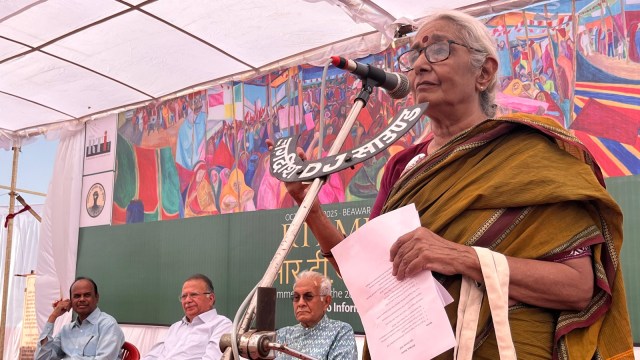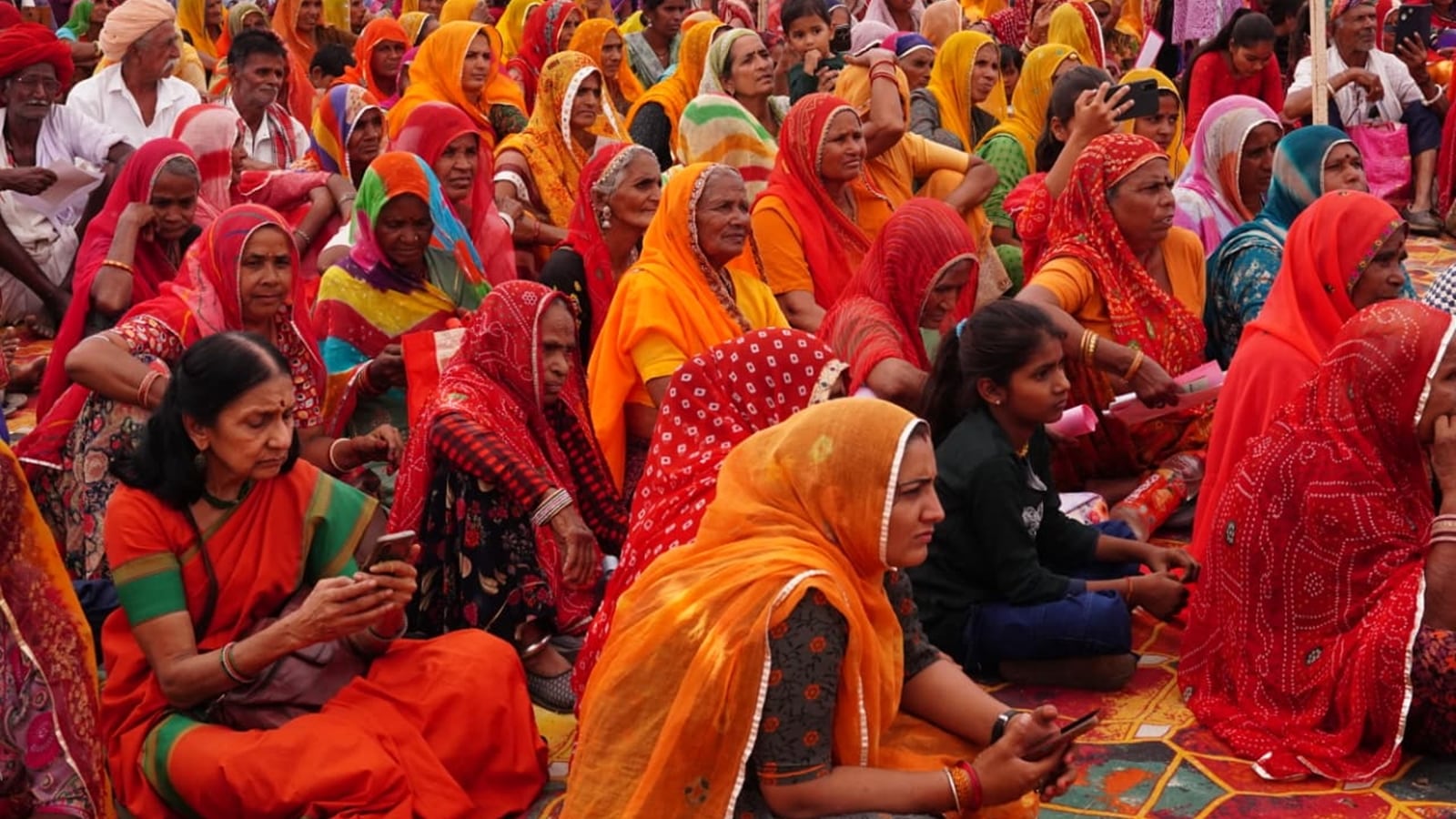How a demand by rural labourers in Rajasthan led to landmark RTI Act: Back where it all started, a movement is remembered
The RTI Mela was held in Beawar to mark 20 years of the RTI Act. Leaders of the movement for the transparency law, which started in Rajasthan, gathered for the event, remembering the past and cautioning about the future.
 Aruna Roy at RTI Mela
Aruna Roy at RTI MelaMarking 20 years since the Right to Information Act, 2005, came into effect, RTI activists from various parts of the country gathered in Rajasthan’s Beawar on Sunday and celebrated the movement for greater transparency that led to the landmark legislation.
The RTI Mela was organised by Mazdoor Kisan Shakti Sangathan (MKSS). It was held in Beawar, the cradle of the Right to Information movement that started with a 44-day protest here in April 1996. The city now has various monuments dedicated to the movement, and plans are underway to establish an RTI Museum.
Nikhil Dey, who is associated with the MKSS and was one of the leaders of the movement, recalled getting threats, going to jail, and facing lathi charges. But there was also grassroots support, he recalled, saying, “We were able to get the support of thousands of rural folks from Rajasthan who demanded accountability from the government about the money spent on the policies brought for their benefit.”
The beginning
The demand for the RTI Act started with rural labourers asking to see the muster roll of the projects they were working on. A muster roll is a record that lists the names of workers and their attendance for a particular public works project, such as those carried out under government employment schemes.
One of those involved in the movement in the 1990s, Sushila Devi (60), told The Indian Express that she went door to door in her village, 70 km from Beawar, seeking support for their demand for the muster roll.
 The RTI Mela also saw activists from Telangana, Karnataka, Meghalaya and Tamil Nadu.
The RTI Mela also saw activists from Telangana, Karnataka, Meghalaya and Tamil Nadu.
“I received death threats, but I got the list after one month, and we got to know that 50% people, despite working for the road construction project, didn’t get paid. Later, we also demanded that the government hospital display the list of available medicines that can be given to patients free of cost. When this materialised, we came to know that medicines taken by pregnant women and those for snake bites were available in the hospital dispensary free of cost, even though many patients were not given these and were forced to go to private stores,” she said.
The RTI Mela also saw activists from Telangana, Karnataka, Meghalaya and Tamil Nadu.
New ‘threat’
Aruna Roy, the founder of MKSS, addressed the gathering and recalled the 44-day dharna at Beawar’s Chang Gate.
“Men and women from all over the state came forward to ask questions to the people in power: Where is our money? ‘Our money, our accounts.’ We were pressured, but we kept going and took this dharna to the state level, and then to the national level. It was a people’s movement. But we are again threatened by the government due to the recent amendment, which will destroy the sanctity of the RTI Act, 2005,” said Roy.
Speakers at the RTI Mela, including Roy, Nikhil Dey, PUCL national president Kavita Srivastava, and former Delhi High Court chief justice A P Shah, flagged provisions of the Digital Personal Data Protection Act, 2023, which they alleged had made it much harder to get information from the government.
Justice Shah said, “This is the government’s way of suppressing the RTI Act, 2005, to avoid any responsibility. We need to stand up against this and again be ready to fight and take to the streets whenever needed. Our brothers and sisters fought for decades to get the transparency law, and now this government has taken it away.”
Aruna Roy said a new movement is beginning in Beawar. “The Right to Information movement began in Beawar, and now a new movement against the DPDPA law enacted by the central government will also begin here. The amendments made by the government to the Right to Information Act through the DPDPA must be withdrawn at all costs. These amendments are an attack on the very spirit of transparency and accountability.”
The Beawar gathering also saw performances from street performers and singers who had taken part in the 1996 movement. They also recalled the momentum building for the movement in the 1990s, as they went to different villages and performed at public gatherings.
On Saturday, starting at 5 pm at Chang Gate, thousands of activists marched through Beawar in a recreation of the 1996 protest.
Nikhil Dey said, “It was a people’s movement. Particularly, people from rural areas participated in large numbers, asking for accountability from the authorities. We were able to overcome the threats we all received because of the support of the people.” He expressed hope that people will also lend support to a movement against the challenges that the activists say the transparency law is now facing.







